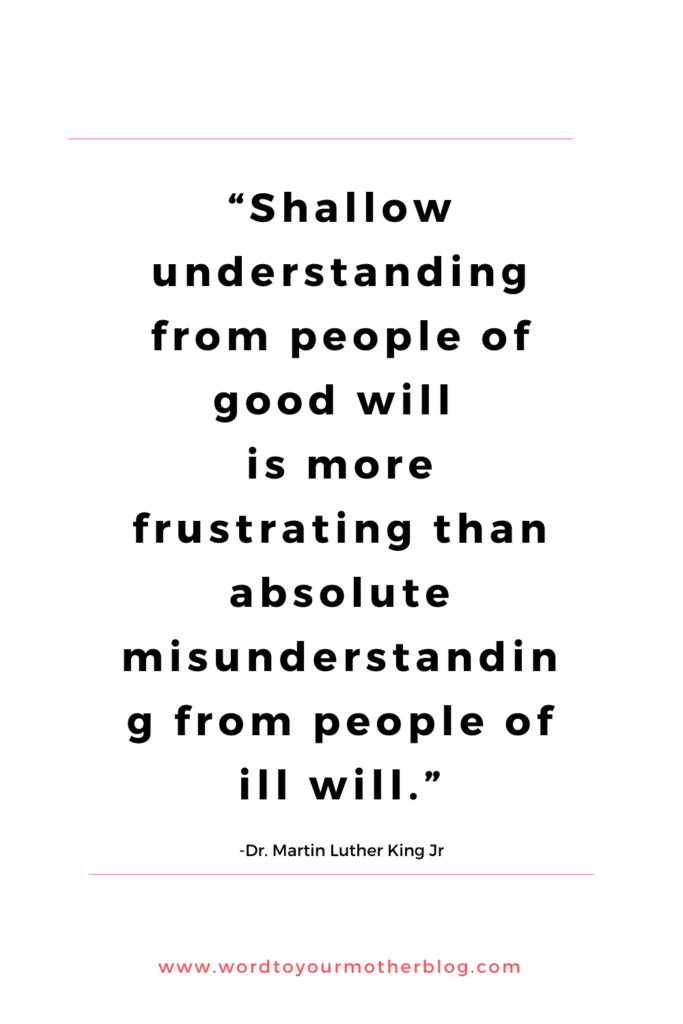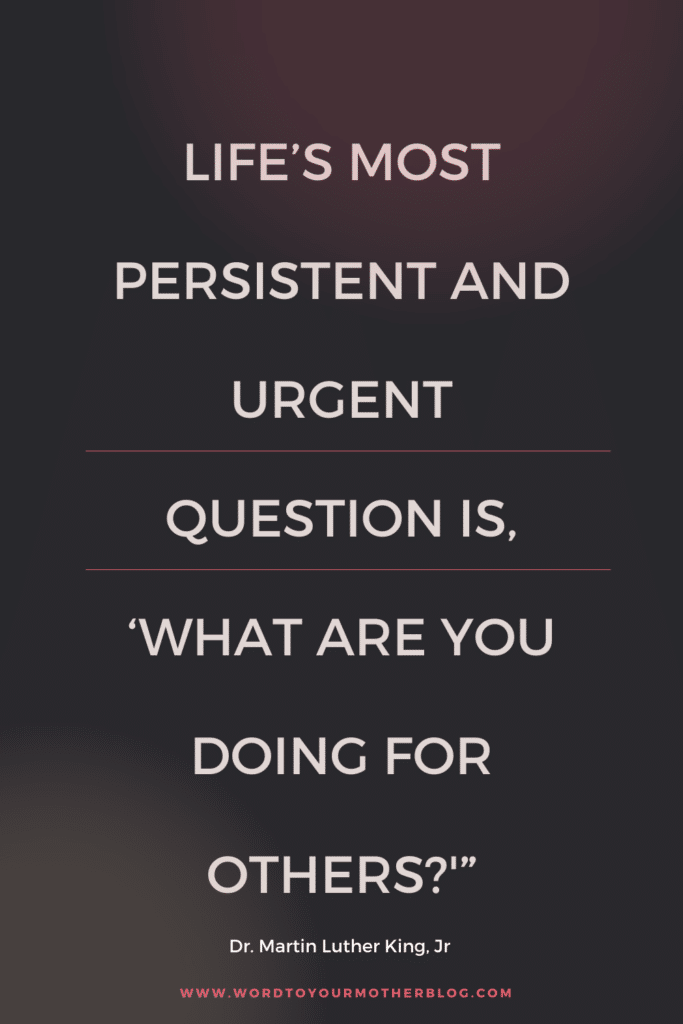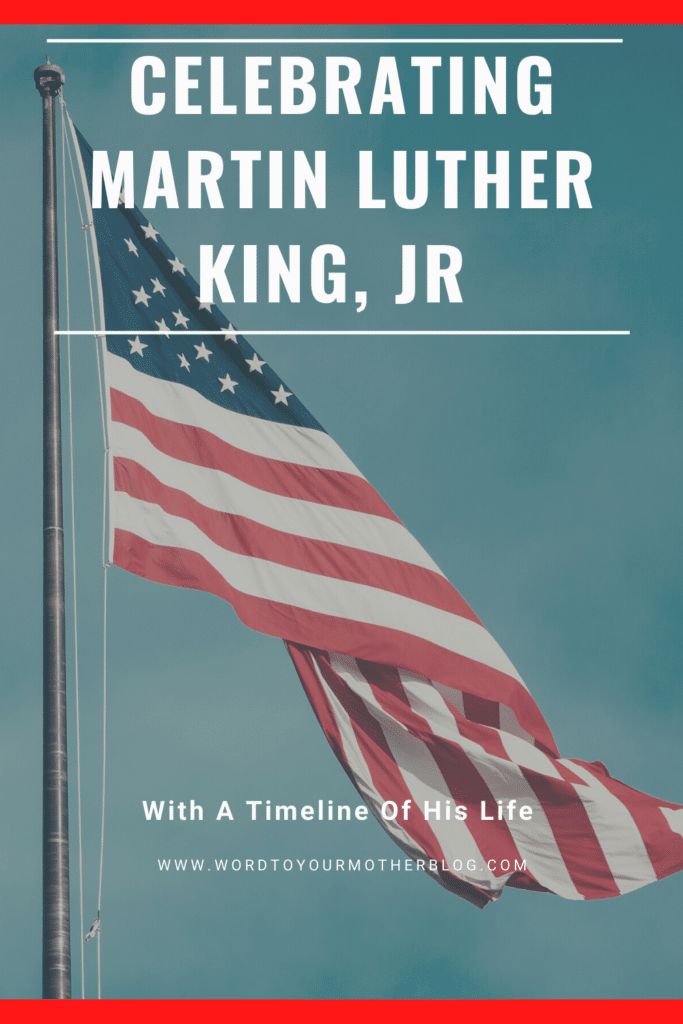Instead of posting a quote to celebrate Martin Luther King, Jr Day, I’m sharing something with a little more substance – as in, a brief outline of the inspiring accomplishments of Martin Luther King, Jr, who was much more than a dreamer.
For the past few years I have honored Martin Luther King, Jr by posting a quote on Facebook, watching a documentary (or ten) and contemplating the character of a man who conducted himself brilliantly in the face of adversity with determination and tenacity until his life was cut short. Dr. Martin Luther King Jr moved mountains, inspired millions, and continues to be a beacon of light and hope for men, women, and children of all races and nationalities. Today, I’m going to be extra, and add this post to my yearly MLK tradition.

Martin Luther King Jr. was an American Baptist minister and activist who became the most visible spokesperson and leader in the civil rights movement from 1955 until he was assassinated in 1968.
Known for advancing civil rights through nonviolence and civil disobedience, King was inspired by his Christian beliefs and the activism of Mahatma Gandhi. King helped organize the 1963 March on Washington, where he delivered his famous “I Have a Dream” speech on the Lincoln Memorial’s steps. You can find a timeline of his life below, but if I could encourage you to do one thing today in addition to celebrating Dr. King, it would be to do something – anything – for your fellow man or woman. Lend an ear or a hand – you have two of both for a reason.

Martin Luther King, Jr: A Legendary Timeline
1929: Born Michael King, Jr (His name was changed to Martin at five years of age after his father, a pastor at Atlanta’s Ebenezer Baptist Church, became inspired by the Protestant Reformation leader Martin Luther.)
1944. Graduated high school at 15.
1948: Earned a sociology degree from Morehouse College
1951: Graduated valedictorian from Crozer Theological Seminary in Chester, Pennsylvania
1953: Married Coretta Scott
1954: Became pastor of the Dexter Avenue Baptist Church in Montgomery, Alabama.
1955: King completed his doctorate in systematic theology. He was 25 years old.
1955: 42-year-old Rosa Parks was arrested for violating the Montgomery City Code. She sat in the first row of the “colored” section in the middle of the bus & refused to give up her seat.
That night, the head of the local NAACP chapter met with King and other local civil rights leaders to plan the Montgomery Bus Boycott. They chose King to lead.
1957: King, along with 60 ministers and civil rights activists, founded the Southern Christian Leadership Conference to harness the moral authority and to organize the power of black churches to conduct non-violent protests to promote civil rights reform.
1959: King visited Gandhi’s birthplace in India – The experience impacted him profoundly and fueled his commitment to America’s civil rights struggle.
1960: King and 75 students entered an Atlanta department store and requested lunch-counter service but were denied. When they refused to leave the counter area, they were arrested. Realizing this situation would not look good for the city’s reputation, the mayor negotiated a truce, and charges were dropped.
But soon after, King was imprisoned for a probation violation from a traffic conviction. (He went to jail over 29 times – for acts of civil disobedience and trumped-up charges – he was arrested in Alabama for driving 30 mph in a 25 mph speed zone.)
Later in 1960, Presidential candidate John F. Kennedy expressed his concern for King’s harsh treatment for the traffic ticket, which put on political pressure, and King was released.
1963: King organized a demonstration in downtown Birmingham, Alabama – city police turned dogs and fire hoses on demonstrators.
King was jailed once again, but the event drew nationwide attention.
King’s famous Letter from Birmingham Jail spelled out his theory of Nonviolence:
“Nonviolent direct action seeks to create such a crisis and foster such a tension that a community, which has constantly refused to negotiate, is forced to confront the issue.”
1963, King made his famous “I Have a Dream” speech, emphasizing his belief that someday our nation would live in harmony.
“I have a dream that my four children will one day live in a nation where they will not be judged by the color of their skin but by the content of their character.”
1964: The Civil Rights Act of 1964 passed – authorizing the federal government to enforce desegregation of public accommodations and outlawing discrimination in publicly owned facilities.
1964: King receives the Nobel Peace Prize
1965: King led a procession of 2.500 black and white marchers to cross the Pettus Bridge. Instead of forcing a confrontation (like the first march, also known as Bloody Sunday), King led his followers to kneel in prayer, and they then turned back.
Five months after the historic peaceful protest, President Johnson signed the 1965 Voting Rights Act.
April 3, 1968: King gives his final and eerily prophetic speech, “I’ve Been to the Mountaintop,”
“I’ve seen the promised land. I may not get there with you. But I want you to know tonight that we, as a people, will get to the promised land.”
April 4, 1968: Martin Luther King, Jr was killed by a sniper’s bullet while standing on a balcony outside his room at the Lorraine Motel. He was 39 years old.
1983: President Reagan signed into law a bill creating Martin Luther King Jr. Day, a federal holiday honoring the legacy of the slain civil rights leader.
I don’t know about you, but when I stop to think of how much Martin Luther King Jr accomplished in his life, under extreme adversity, I feel like I need to double down on my life’s mission and do more meaningful, impactful work. What about you? Are you inspired to take action? Learn more about MLK? Let me know in the comments!
You May Also Want To Read
18 Inspirational Quotes Every Mom Needs To Share (If She Wants To Raise A Fearless Girl)
9 Secrets of Moms Who Raise Girls With Confidence
50 Awe-Inspiring Acts of Kindness for Kids
Please Share This With a Friend or Save It For Later!












